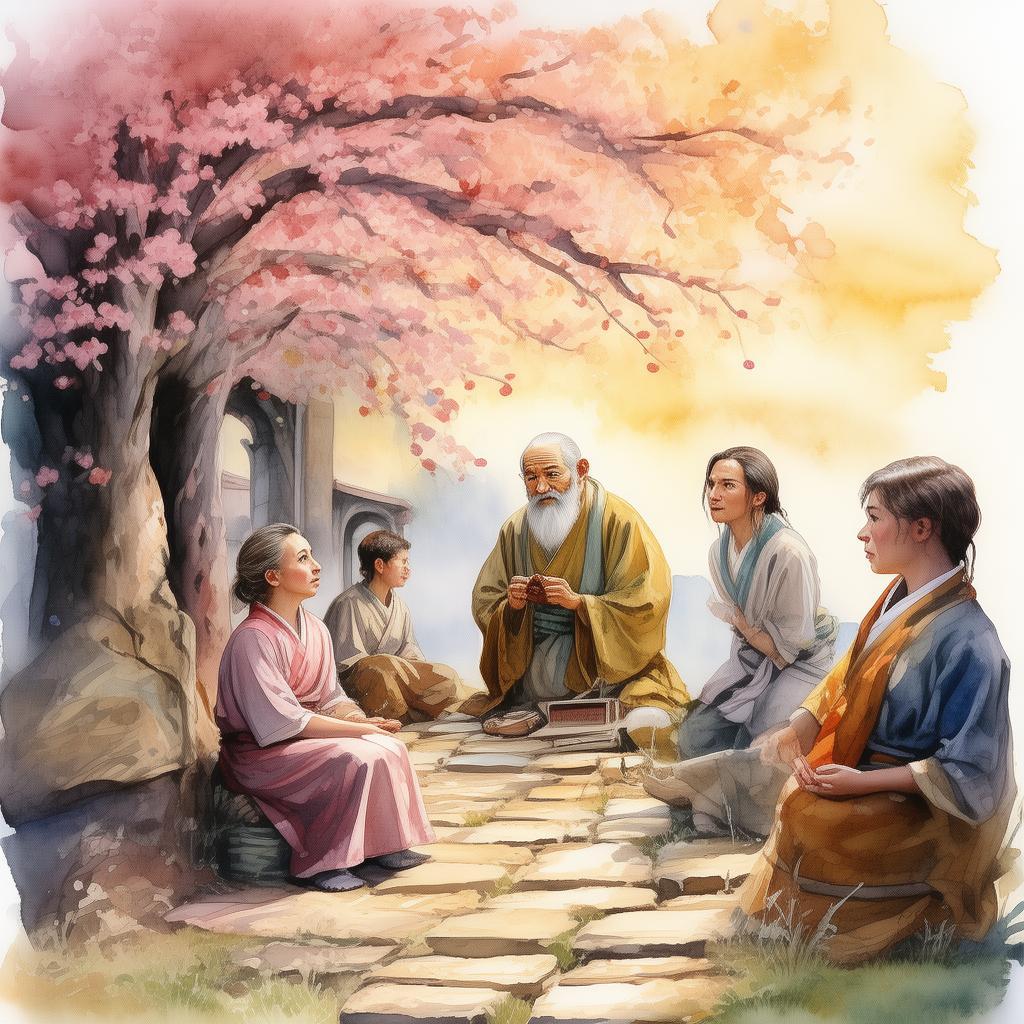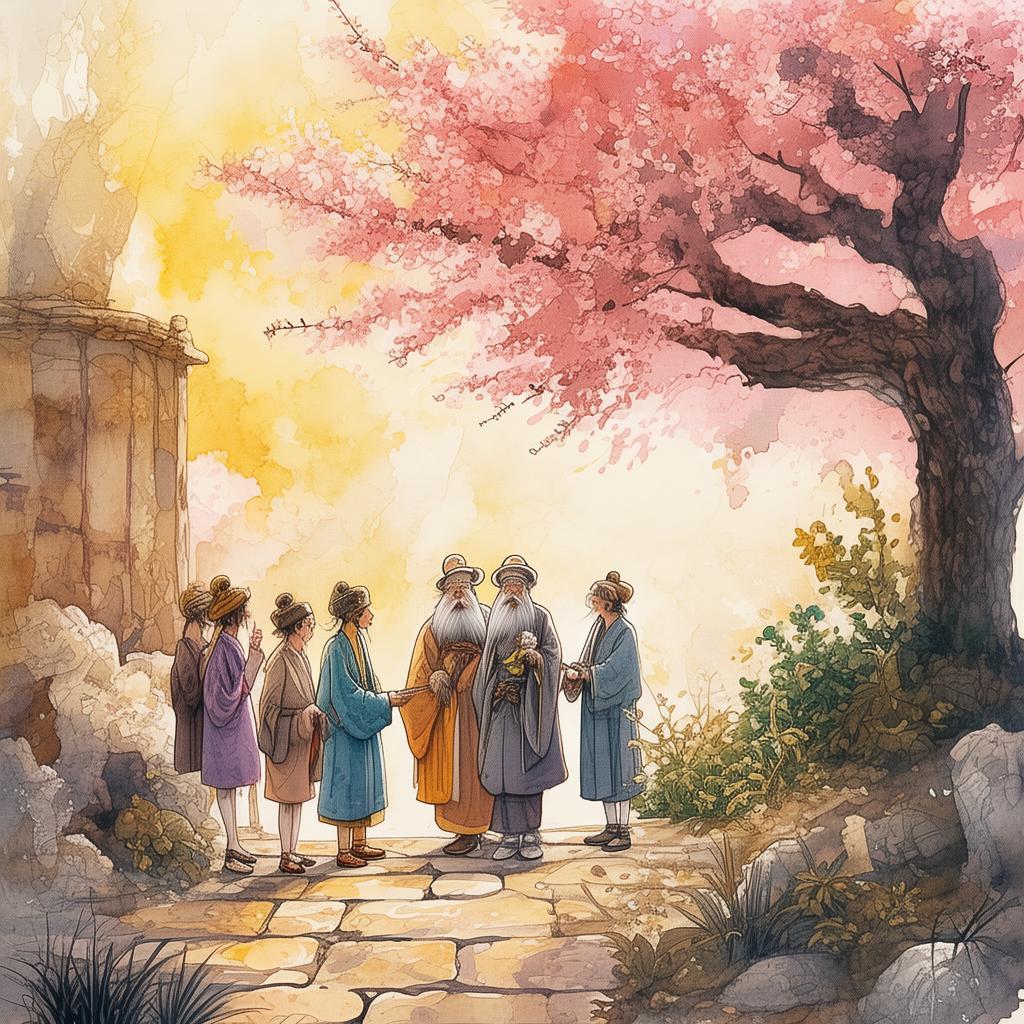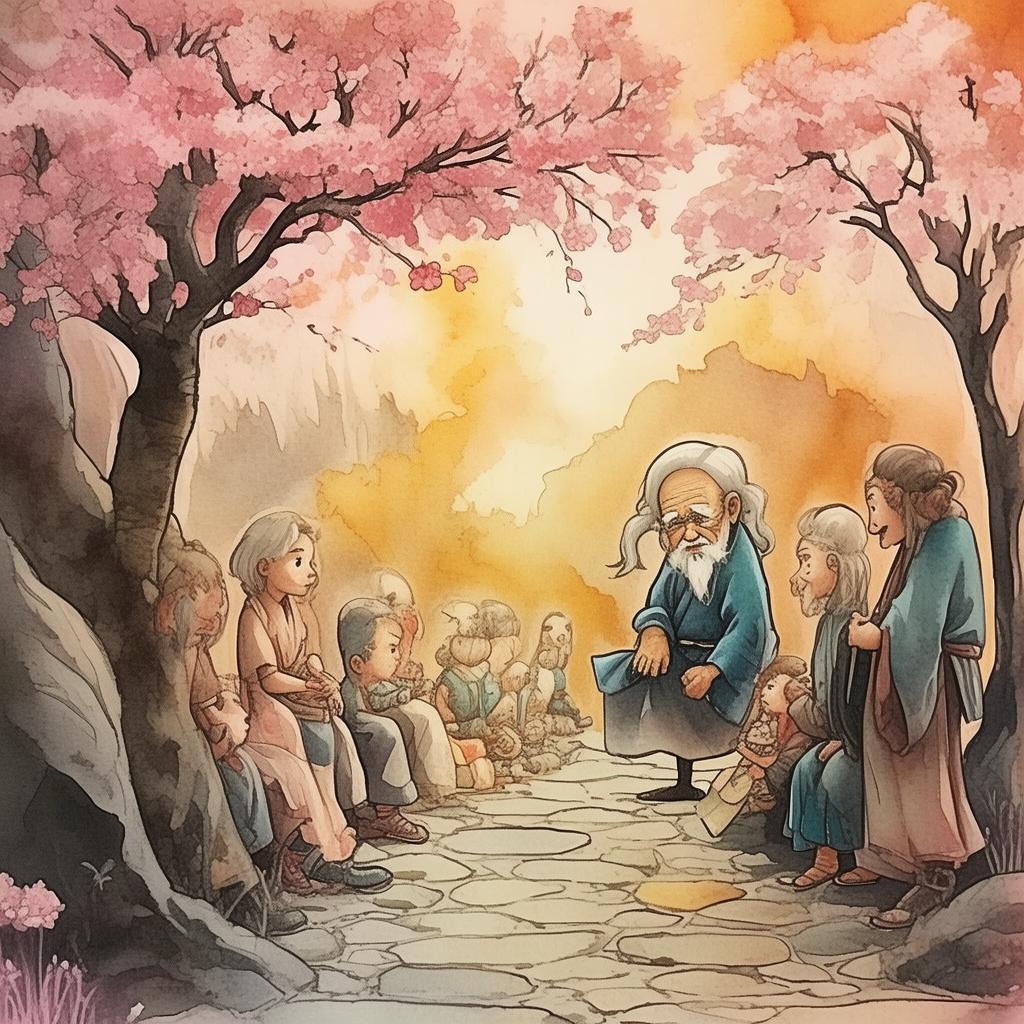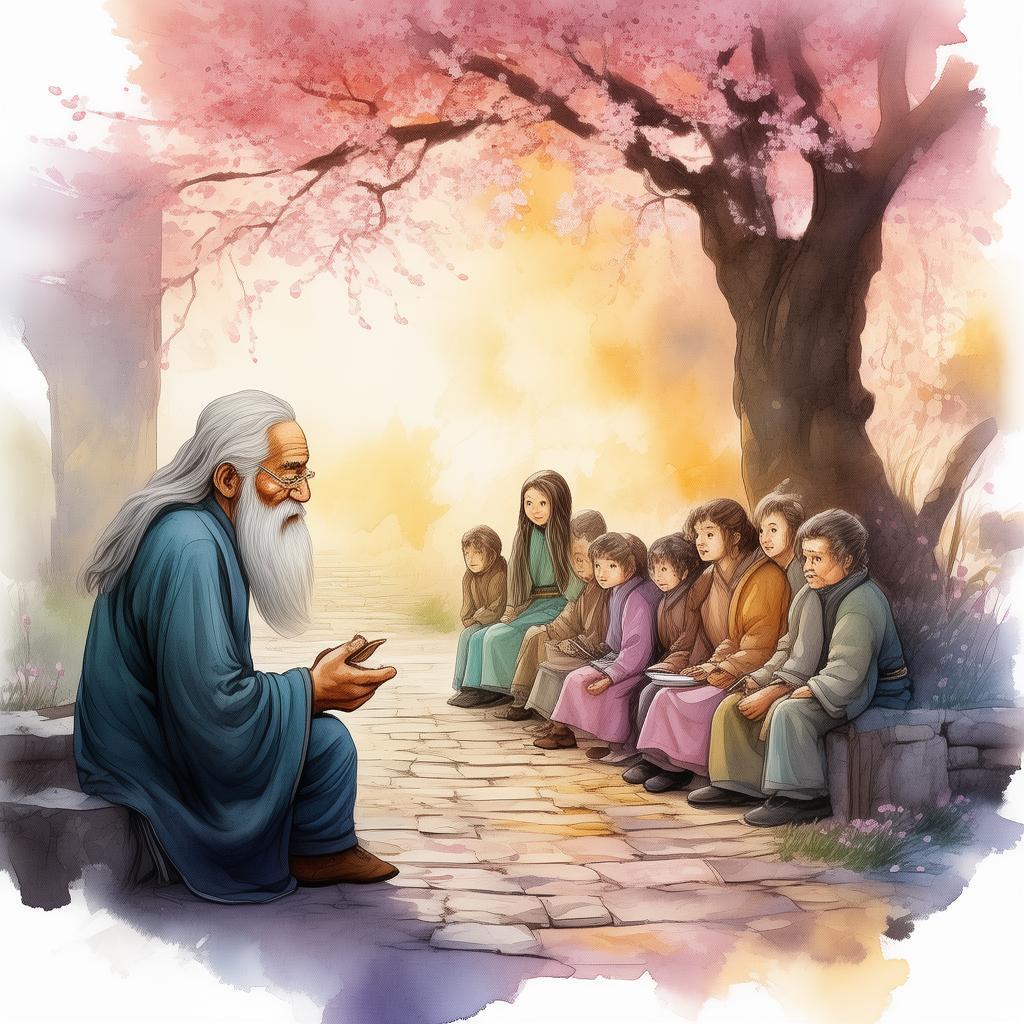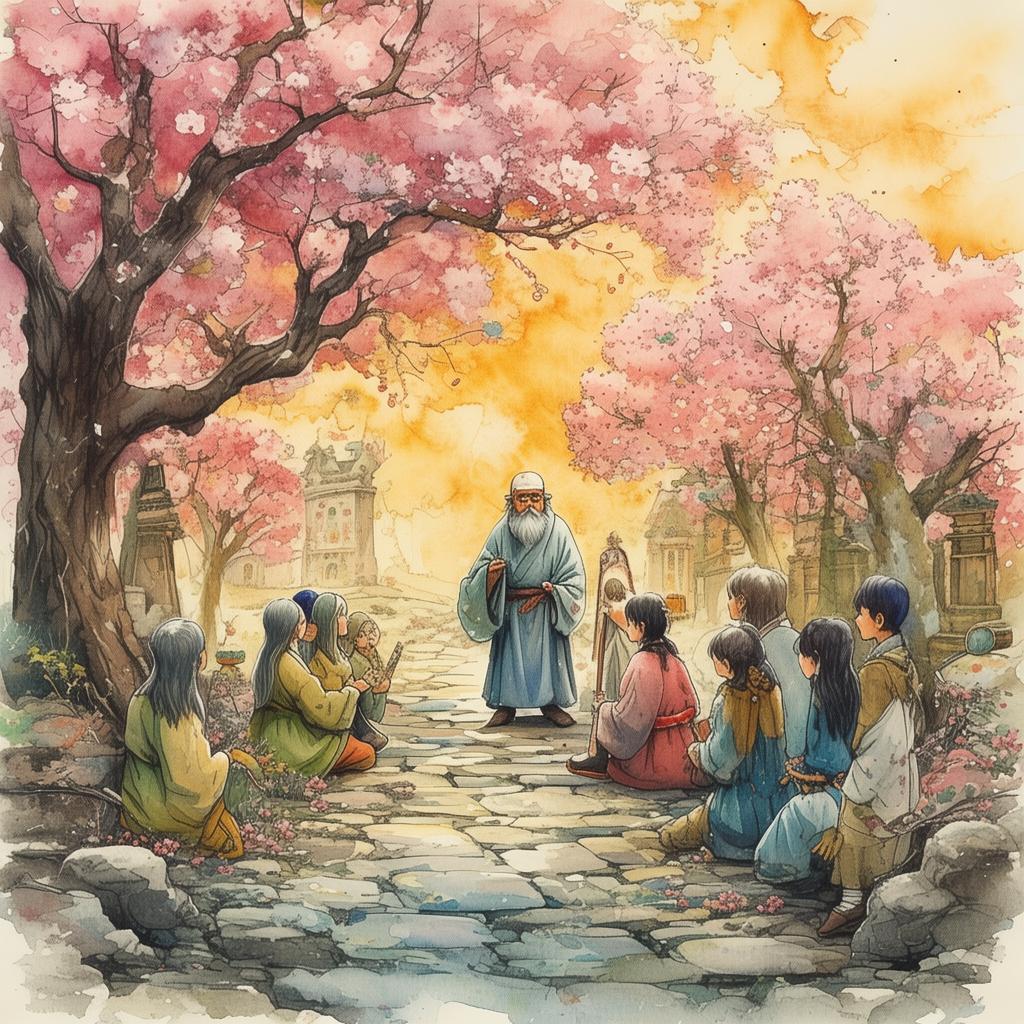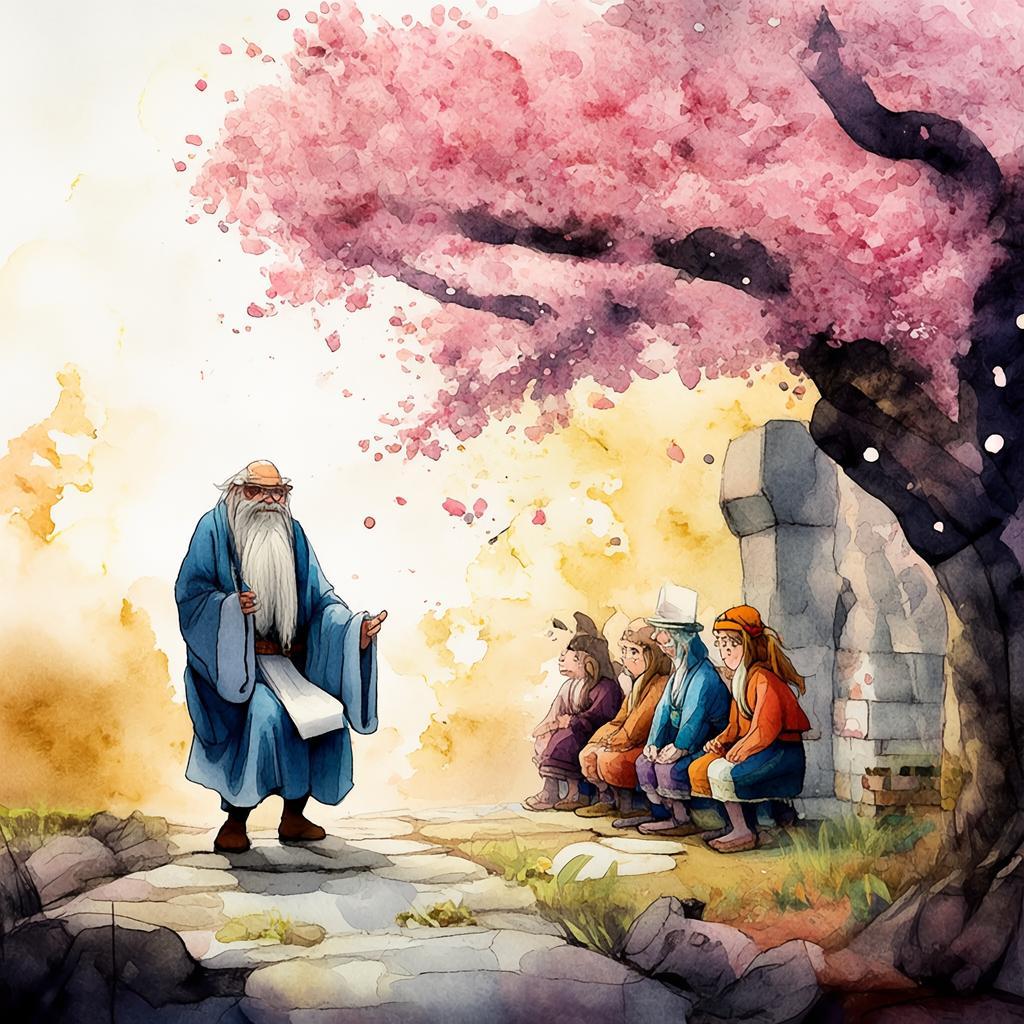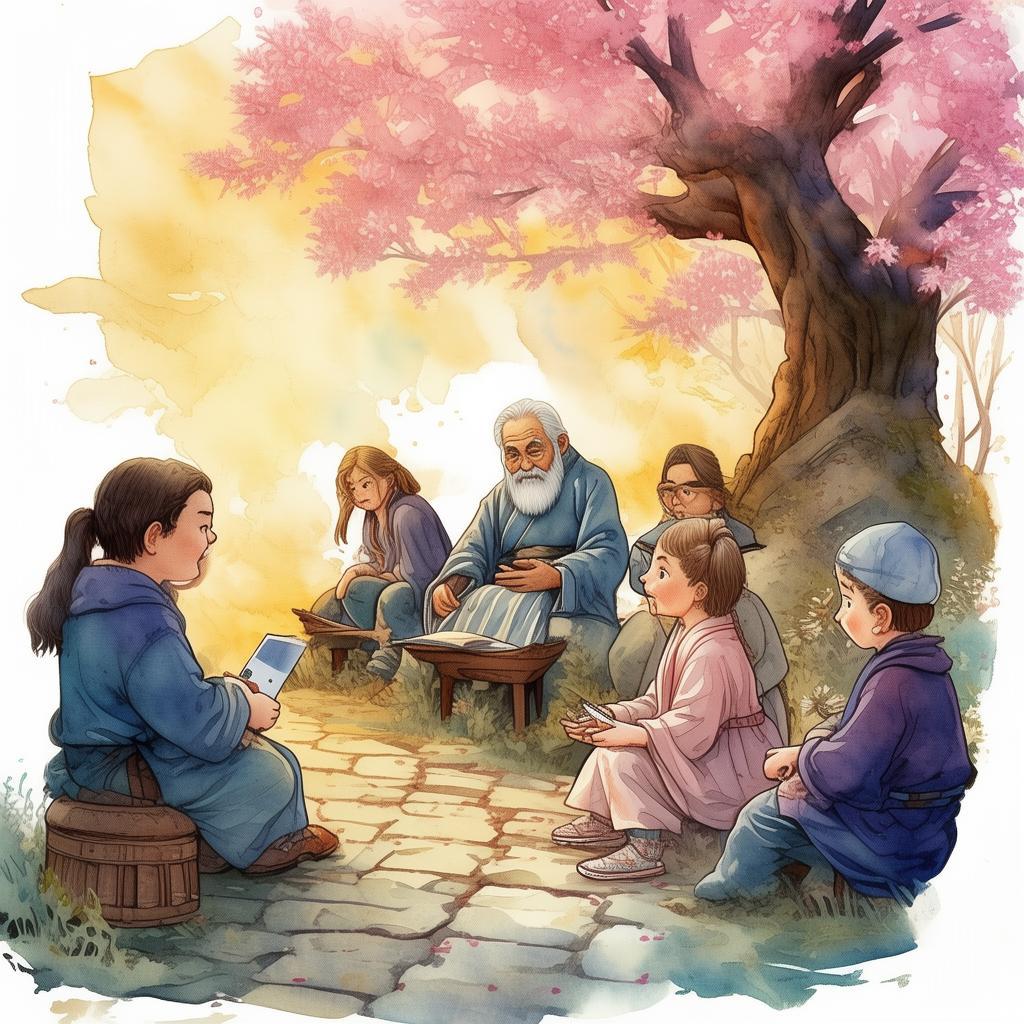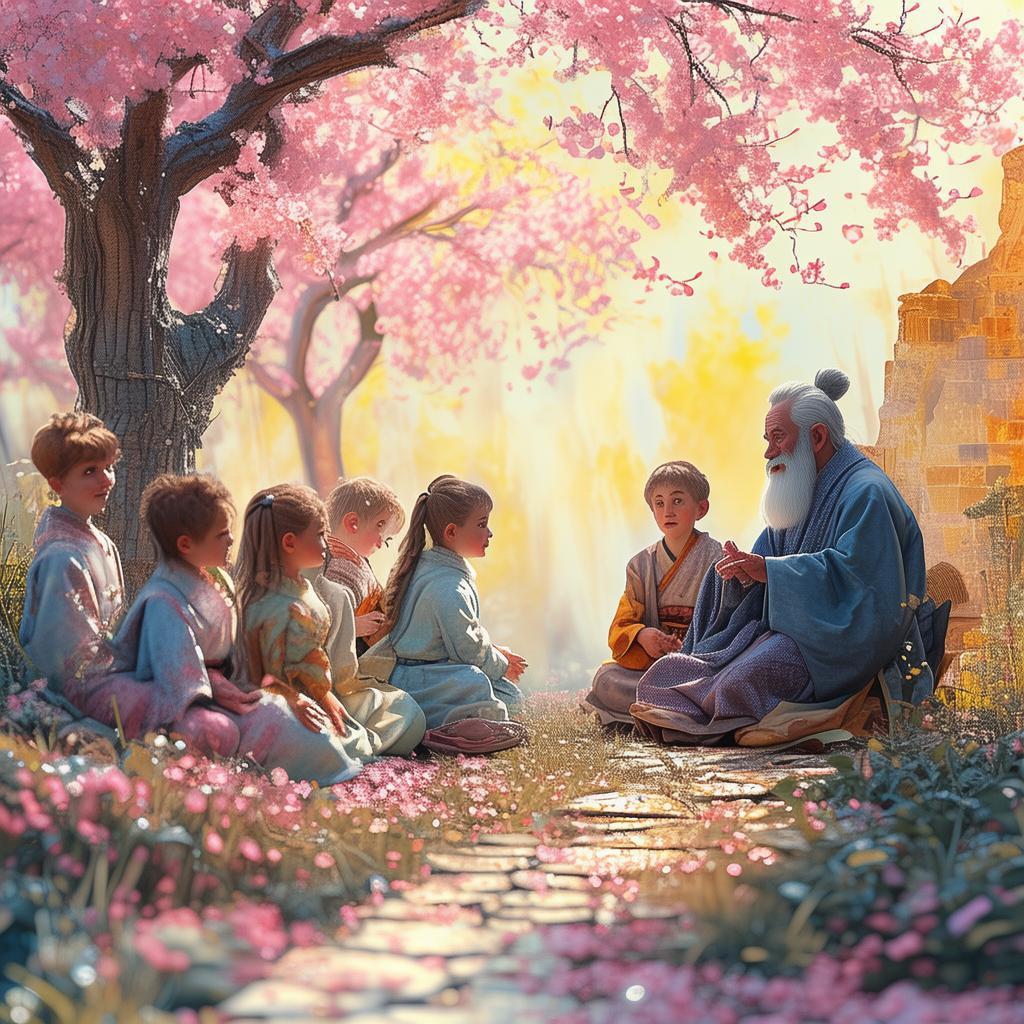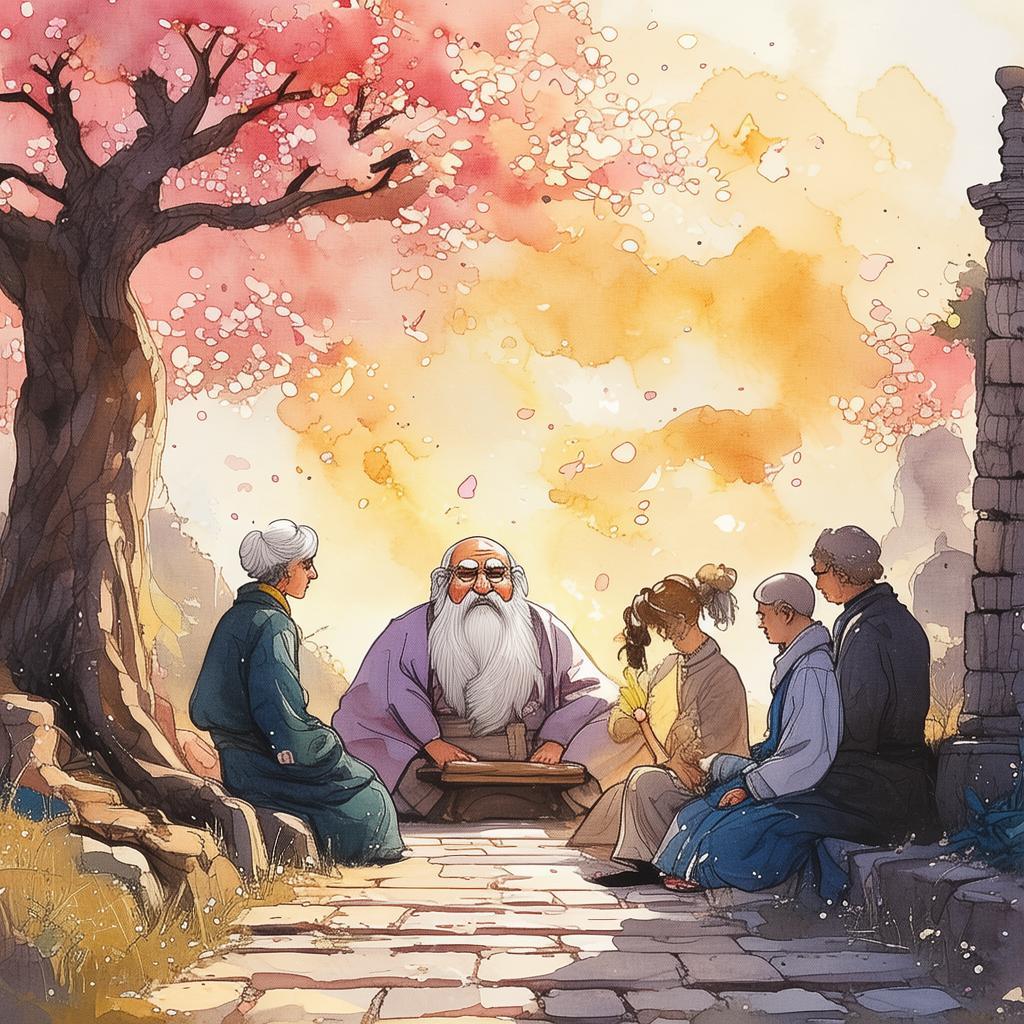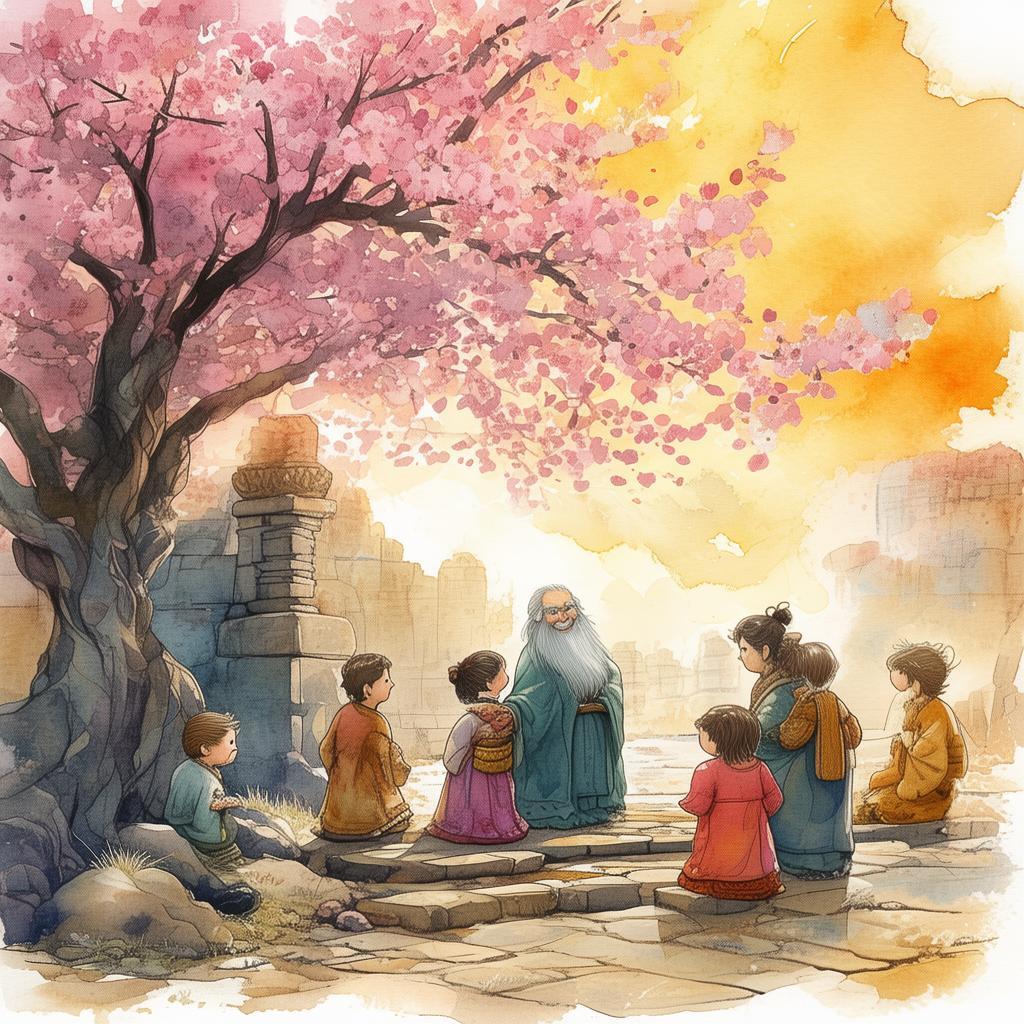Whispers of the Imperial Throne: The Riddle of the Golden Frame
In the heart of the ancient imperial dynasty, a tale of intrigue and treachery unfolded within the walls of the grand palace. The story began with the enigmatic Golden Frame, a relic that had been passed down through generations, a symbol of power and the dynasty's enduring legacy.
The Golden Frame was a marvel of craftsmanship, adorned with intricate carvings that depicted the history of the empire. But it was not merely a piece of art; it was said to hold a riddle that, when solved, would reveal the true heir to the throne. This riddle had been a closely guarded secret, known only to the most trusted advisors of the empress.
The empress, a woman of great intelligence and cunning, had decreed that the riddle would be solved during the upcoming festival of the Dragon's Roar, a celebration marking the dynasty's prosperity and unity. The task fell to the prince, the heir apparent, to decipher the riddle and prove his worthiness to ascend the throne.
As the festival approached, whispers of the riddle spread like wildfire through the palace. The court was abuzz with speculation and intrigue, each nobleman and noblewoman vying for favor and hoping to be the one to solve the riddle. Among them was a young advisor named Ming, known for his sharp wit and keen intellect.
On the eve of the festival, Ming was approached by a mysterious figure who whispered a proposition in his ear. The figure, claiming to be an exiled nobleman, offered Ming the chance to solve the riddle for a price—a share of the throne. Ming, torn between loyalty to the empress and the allure of power, hesitated.
The festival arrived, and the empress, surrounded by her closest advisors, awaited the prince's revelation. The prince, nervous and excited, stepped forward, holding the Golden Frame. With a deep breath, he began to recite the riddle:
"In the heart of the palace, where shadows play,
A frame of gold, with secrets it does convey.
Two figures face each other, their eyes do gleam,
The one who knows the truth, will take the throne."
The court was silent, the breaths of the attendees held in anticipation. The prince paused, searching for the answer. Ming, who had been observing the scene, noticed the prince's struggle. He knew the answer, but he was torn. He could not betray the empress, yet he desired power.
Suddenly, Ming stepped forward. "Your Highness," he said, "the answer lies in the past, in the story of the founder of our empire. It was not a single figure who took the throne, but two: one who held the power of the sword and the other who held the power of the heart."
The empress smiled, a knowing glint in her eye. "Very well," she said. "Ming, you have proven yourself. You shall be the new advisor, and your loyalty will be rewarded."
But Ming's victory was short-lived. The mysterious figure returned, this time with a more sinister proposition. He revealed that he had been working with a group of traitors who sought to overthrow the empress and take the throne for themselves. Ming, now more cautious, refused the offer, but the seeds of betrayal had been sown.
As the days passed, Ming's loyalties were tested. He was approached by various factions, each with their own agendas. Some offered him wealth, others offered him power, and still others offered him the promise of saving the empire from corruption. Ming found himself in a web of deceit and treachery, struggling to discern truth from lies.
One night, as he walked the palace grounds, Ming encountered the prince in a secluded garden. The prince, looking weary, confided in Ming about his own doubts. "I fear," he said, "that I am not fit to be the next emperor. The weight of the throne is too great, and I am not sure I can bear it."
Ming, feeling a surge of compassion, offered his assistance. "Your Highness," he said, "the empire needs a leader who is both wise and just. You have the potential to be that leader, but you must first confront the truth within yourself."
The prince nodded, his eyes filled with gratitude. "Thank you, Ming. I will not let you down."
As the days of the festival turned into weeks, Ming worked tirelessly to unravel the mystery of the traitors. He discovered that the group had been infiltrated by a trusted advisor to the empress, who had been working in secret to undermine her rule. Ming's loyalty was questioned, and he was placed under suspicion, but he remained steadfast.
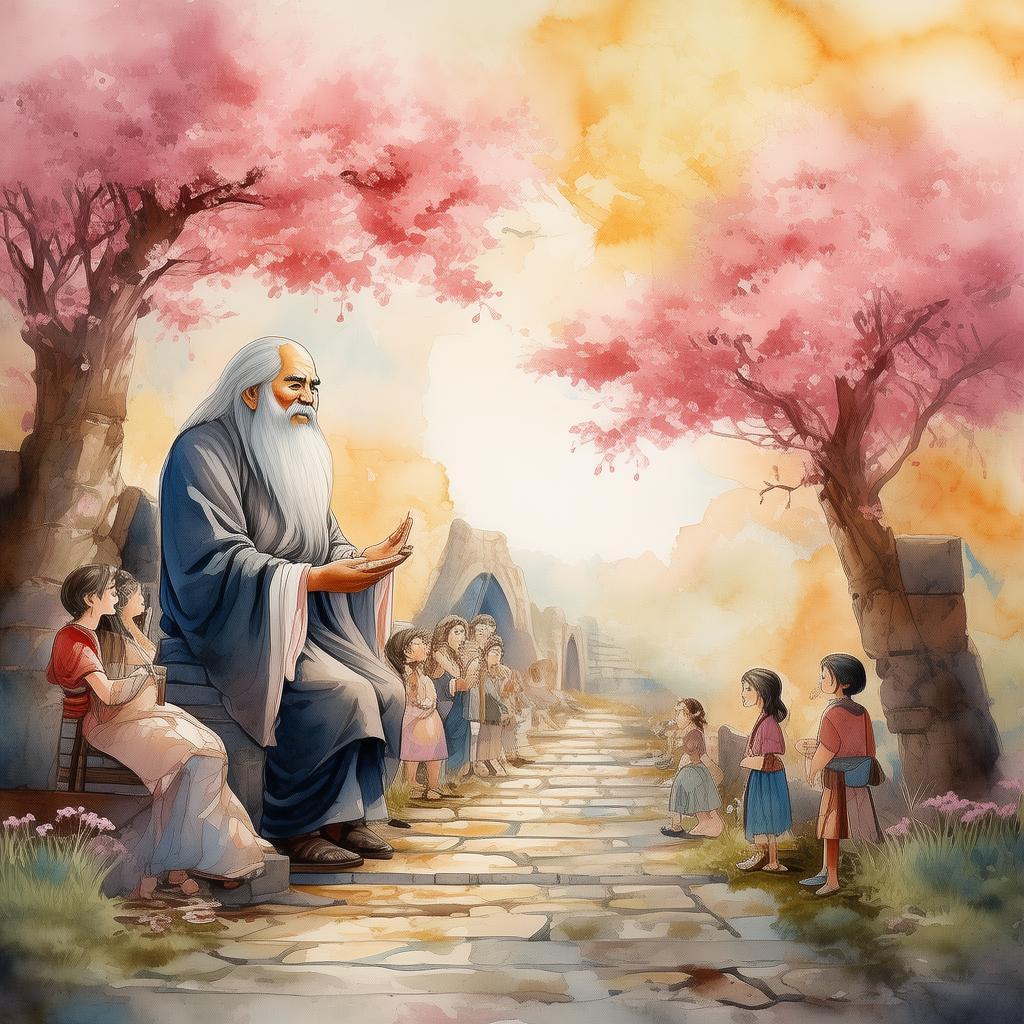
The climactic moment arrived when Ming confronted the traitor in the secret chamber of the palace. The traitor, caught in a web of his own making, confessed to his betrayal. Ming, with a calm resolve, revealed the traitor's treachery to the empress.
The empress, grateful for Ming's unwavering loyalty, forgave him and rewarded him once more. The traitor was banished, and the empire was saved from the brink of civil war.
The Golden Frame, once a symbol of power and mystery, had become a testament to the strength of loyalty and the courage to face the truth. Ming had proven his worth, and the prince, with Ming's support, began his reign as a just and wise leader.
The tale of the Golden Frame and the riddle that tested loyalties would be told for generations, a reminder that true power lies not in the hands of those who seek it, but in the hearts of those who wield it with integrity and compassion.
✨ Original Statement ✨
All articles published on this website (including but not limited to text, images, videos, and other content) are original or authorized for reposting and are protected by relevant laws. Without the explicit written permission of this website, no individual or organization may copy, modify, repost, or use the content for commercial purposes.
If you need to quote or cooperate, please contact this site for authorization. We reserve the right to pursue legal responsibility for any unauthorized use.
Hereby declared.
